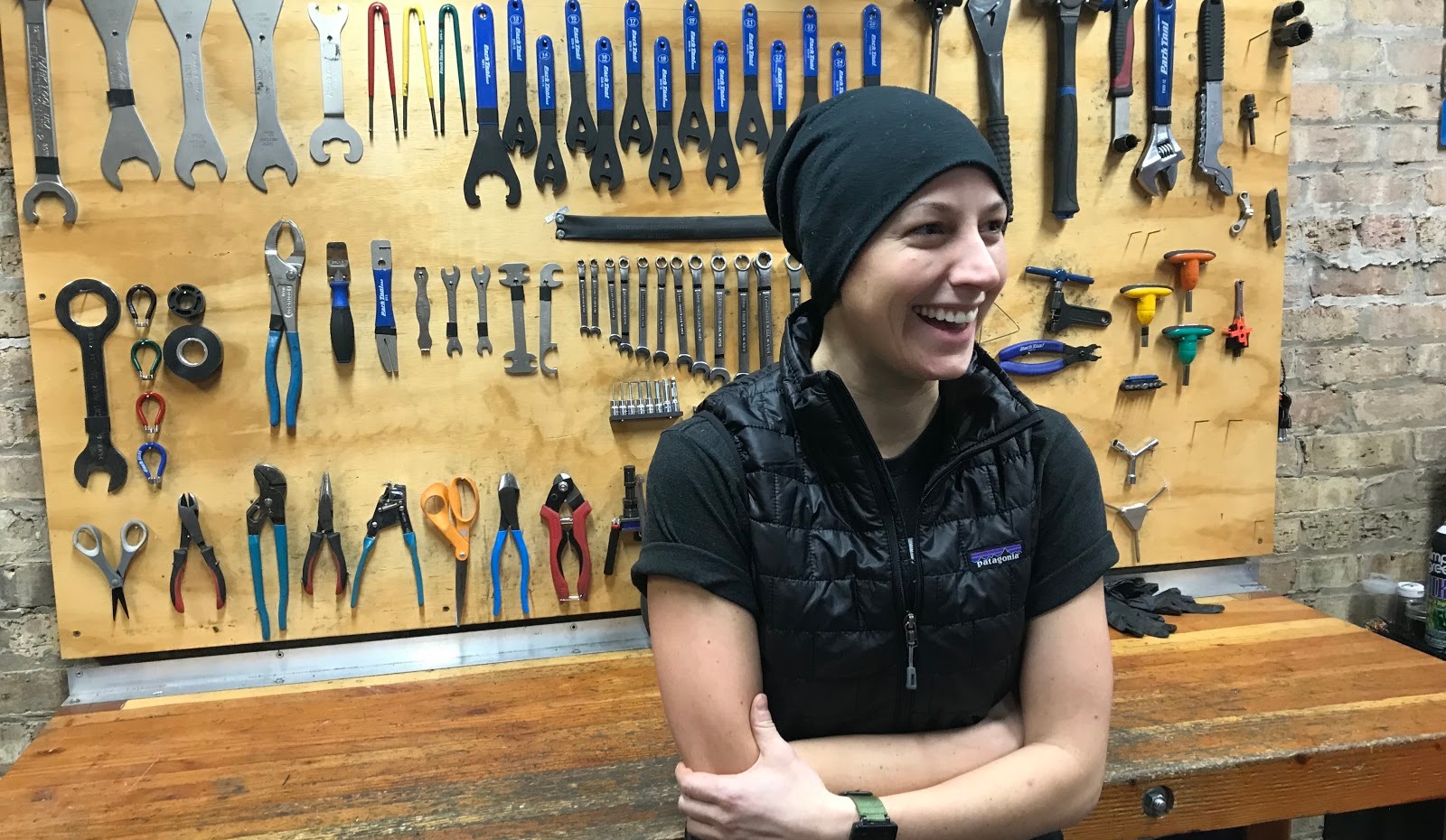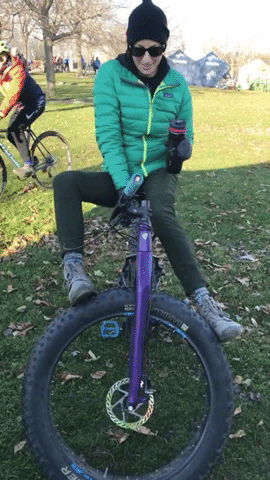
Gretchen Brauer: General Manager, Wheel & Sprocket - Evanston for 6 years
Bike Maintenance Tips and Tricks
Gretchen Brauer of Wheel & Sprocket - Evanston General Manager provides advice on taking proper care of your bike.

How long have you been a mechanic?
I have been a mechanic since I was 17 years old, which puts it at 18 years. I have been a mechanic longer than I have not been a mechanic.
What got you first interested in fixing things?
My brother and I used to take apart a lot of stuff, and my dad was always very hands-on, and he taught me how to take things apart and put them back together, so I think it was always just part of my life.
Why bikes?
Bikes are fun. Bikes are all very basic, yet the intricacies of each and every bike is so different that it makes it interesting to work on every single bike.
What kind of bikes do you ride?
Of all my bikes, I ride my All City Macho Man disc the most. It’s my commuter, so it’s the most utilitarian: I can ride it around town, it’s got a rack on the back, it’s got fenders on it, and it’s probably the most durable of my bikes. But I also did an Ironman a few years back, so I’ve got a lot of miles on my Trek Speed Concept. I ride road when I ride with some friends; mountain when I go back to Michigan.
The Importance of Maintenance: Preventing Problems Before They Start
A lot can go wrong for you if your bike is not properly maintained Your bike has a lot of parts that need to have grease, and be torqued (adjusted) properly. There is a snowball effect if the bike starts to “fatigue” due to neglect which can also become a safety risk. That usually means costly repairs to replace parts that you could have prevented with proper maintenance.
Listen to your bike!
Noise is the number one sign that your bike may need some love. That squealing chirpy bird sound is your chain screaming at you to please put some lubrication on it. There are some noises that are okay--squealing howly disc brakes, when they start to get wet, are a super common thing; that actually is just the pads with a little bit of contamination on the surface, and it’s no big deal; you can keep riding. But for the most part, noise is not good.
Regular check-ups
I don’t think there’s a bike that shouldn’t be looked at least every year. If you’re a heavy rider and you ride all year, I would say bring it in twice a year. All of our estimates are free, so we can look over the bike and recommend what we think needs to happen in order for it to keep running smoothly. We might put it up in the stand and look at it and say, “You really don’t need anything,” but we also might find something that’s gonna be a $30 repair right now, but if you ride on it another year, it’s gonna be an $85-$100 repair.
Day to Day maintenance
Lubing your chain, airing your tires, and making sure that stuff is snug are safe things that most everybody can do at home.
- Bike Pump - Every single time you ride, you should check your tire pressure. A lot of people assume that your tires barely need to be inflated at all, which is not the case. Checking your tire pressure avoids getting pinch flats and allows your tire pressure to run at a safer level, so that you are safer while you’re on your bike.
- Chain Lube - Some sort of bicycle chain lube that you could also probably use on your cables and housing, especially for bikes that have to sit out all the time. Make sure you clean your chain after you lube it. The lube really just has to get into the chain; nothing on the surface really matters, but a lot of people don’t wipe that off, so it just grabs a ton of dirt and it actually wears out your chain faster.
- Keep it Clean - Some sort of a chain cleaning system would be the best. During the winter especially, we get a lot of salt and disgusting slush all over the place, so being able to clean your chain would be really good, and then probably just some nice rags so you can keep the frame a little bit cleaner.
